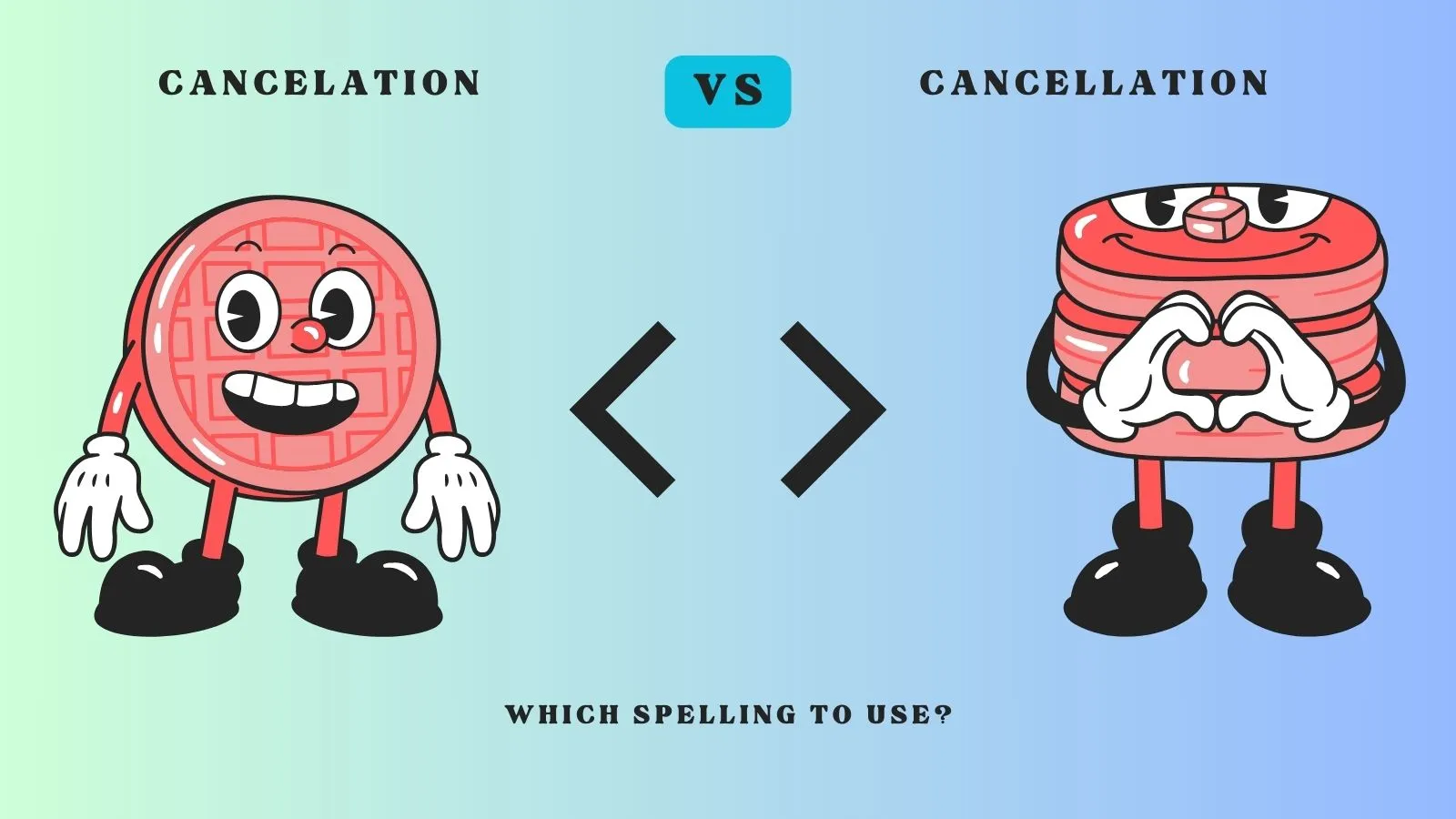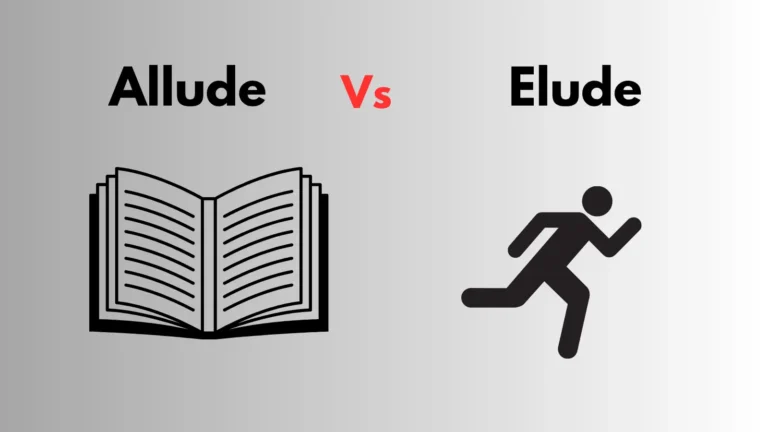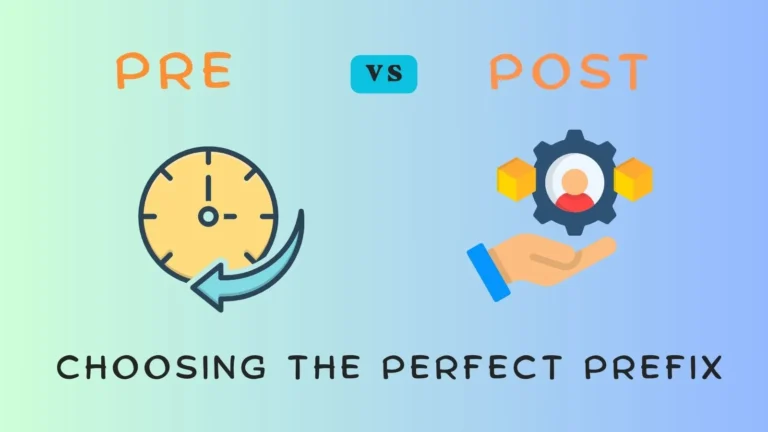Cancelation Or Cancellation: Which Spelling Is Correct?
Both “Cancelation Or Cancellation” are technically correct spellings with identical meanings. While American English theoretically prefers “cancelation,” the double-L version “cancellation” is vastly more common in both American and British usage. British English consistently uses the double-L form in all variations. For professional writing, you’ll want to use “cancellation” unless specifically following American style guidelines that call for single-L spelling. The distinction reveals fascinating insights into English spelling evolution.
Cancelation Or Cancellation ? Quick Answer
The spelling dilemma between “cancellation” and “cancelation” has a clear resolution: both are technically correct, but “cancellation” (with two L’s) is vastly more prevalent in both American and British English.
While American English typically simplifies spellings with single consonants (favoring “canceling” over “cancelling”), the noun form “cancellation” remains dominant even in American usage. British English consistently doubles the ‘l’ in all related forms.
For professional writing, choose “cancellation” to guarantee your spelling appears correct to the widest audience. This preference reflects standard usage patterns across English-speaking countries, despite the theoretical acceptability of both spelling variants.
Where Does This Confusion Start?
While examining the origins of this spelling debate, you’ll find that confusion stems primarily from the inconsistent application of spelling rules between American and British English.
The cancellation vs cancelation spelling dilemma emerged from Noah Webster’s 19th-century spelling reforms in America, which aimed to simplify English.
British English maintains traditional double consonants in words like “cancellation,” while American English theoretically prefers “cancelation” with a single “l.” However, in practice, even American publications often use “cancellation.”
This inconsistency across dictionaries, style guides, and everyday usage creates persistent spelling variations that leave many writers uncertain about which form is truly correct cancelation vs cancellation.
What Is The Actual Meaning Of “Cancelation” And “Cancellation”?
Semantically, both “cancelation” and “cancellation” share identical meanings regardless of their spelling variations. They refer to the act of calling off or terminating something previously scheduled or planned—whether it’s an event, subscription, reservation, or agreement.
The difference lies solely in spelling convention, not meaning. While “cancellation” (double-l) is preferred in British English and generally more common worldwide, “cancelation” (single-l) occasionally appears in American English contexts following Noah Webster’s spelling simplification efforts.
When you encounter either spelling, understand that they convey the exact same concept—the nullification or termination of arrangements. The meaning remains consistent despite this orthographic variation.
Which Spelling Should I Use? Single “L” Or Double “Ll”?
When choosing between “cancellation” and “cancelation,” it’s advisable to use “cancellation” with two l’s in most situations. This double-l spelling is standard in British English and remains the preferred form in American English as well, despite some movement toward simplified spelling.
The same pattern applies to related forms: “cancelling” (British) versus “canceling” (American). While both spellings are technically correct, “cancellation” appears more frequently in formal writing across all English-speaking regions. For consistency in your writing, stick with the double-l spelling unless you’re specifically following American style guidelines that prefer simplified spelling conventions.
Is There Any Difference Between American And British English spelling Cancellations or Cancelations?
Yes, American and British English differ noticeably in their approach to the spelling of “cancellation.” The double-l spelling (“cancellation”) dominates in British English as the only standard form, reflecting Britain’s preference for traditional orthography.
In American English, while “cancelation” with one “l” technically exists as an acceptable variant, “cancellation” remains more prevalent even in American publications and formal writing.
| Spelling | American English | British English |
|---|---|---|
| cancellation | Common | Standard |
| cancelation | Acceptable but rare | Not standard |
| verb form | canceled/canceling | cancelled/cancelling |
This pattern aligns with broader spelling differences between the two language variants, where American English often simplifies consonant doubling.
Examples In Context
Examples illustrate the proper usage of “cancellation” in various contexts. You’ll notice that “cancellation” (with double-l) appears more frequently in formal writing across both American and British English, while “cancelation” exists primarily in American English but remains less common.
Your flight cancellation notice arrived just minutes before boarding was scheduled to begin.
The university issued refunds following the cancellation of all spring semester classes.
Their subscription cancelation policy requires 30 days’ written notice.
Wedding cancellations increased dramatically during the pandemic.
Whether you write “canceled” or “cancelled” depends on your audience’s regional expectations.
Origins Of “Cancellation
The etymology of “cancellation” traces back to the Latin word “cancellare,” meaning “to cross out with lines” or “to form a lattice.” This Latin term referred to the practice of drawing intersecting lines through text to invalidate it, resembling the bars of a lattice or grid.
The noun form “cancellationem” evolved into our modern “cancellation.” In the 15th century, you’ll find this term used in medical contexts to describe crossed retinal images. The Spanish “cancelar” shares this Latin ancestry.
Cancel or Cancelled
The terms cancel and cancelled are commonly used in everyday language. To “cancel” refers to the action of calling off an event, service, or agreement before it takes place. This could apply to anything from a dinner reservation to a subscription service.
On the other hand, “cancelled” is the past tense form of the verb. It indicates that an event or service has already been called off. For example, if a flight is cancelled, passengers are informed ahead of time, allowing them to make alternate travel arrangements.
Understanding the difference between these two terms cancel or cancelled is important, especially in formal communication. Many people mistakenly use “canceled,” which is the American English spelling, while “cancelled” with two L’s is preferred in British English.
What Is The American Spelling Of Cancelled?
Confusion about the correct American spelling of “cancelled” continues to perplex writers who navigate between different English variants. In American English, the preferred form is “canceled” with a single “l” rather than “cancelled.” This follows Noah Webster’s spelling reforms that simplified many British spellings.
| Word Form | American Spelling | British Spelling |
|---|---|---|
| Past Tense | canceled | cancelled |
| Gerund | canceling | cancelling |
| Noun | cancellation | cancellation |
Interestingly, while Americans use “canceled” and “canceling” with one “l,” the noun form “cancellation” typically retains both.
How Do You Spell Cancelled Correctly
The correct spelling of “cancelled” frequently sparks questions among writers and language enthusiasts. When determining the proper spelling of cancelled, remember that both “cancelled” (two L’s) and “canceled” (one L) are correct, but differ by region. The American spelling of cancelled uses one L (“canceled”), while British English retains the double L (“cancelled”).
| Spelling Variation | Regional Usage | Emotional Response |
|---|---|---|
| cancelled | British English | Formal, traditional |
| canceled | American English | Modern, simplified |
| cancelling/canceling | Both variations follow the same pattern | Consistent application reduces confusion |
Always match your spelling to your audience’s expectations and maintain consistency throughout your writing.
How To Spell Cancelled In Us
Many American English users frequently encounter questions about the proper spelling of “cancelled” in the US. The preferred American spelling is “canceled” with a single “l,” following Noah Webster’s spelling reforms that simplified words when adding suffixes.
In American English, you’ll typically use:
- canceled (not cancelled)
- canceling (not cancelling)
- cancellation (though “cancelation” exists, “cancellation” remains more common)
This pattern occurs because in American English, consonants are doubled only when the stress falls on the syllable attached to the suffix. Since “cancel” stresses the first syllable, the “l” remains single when adding suffixes.
Frequently Asked Questions
Cancellation vs Cancelation”: Which Spelling Should You Use?
You’ll find that “cancelling” (British) and “canceling” (American) represent the same action but differ in spelling conventions across English variants.
The verb “cancel” maintains consistent spelling globally, while its derivatives follow regional patterns—American English typically uses one “l” (canceled, canceling) and British English doubles it (cancelled, cancelling).
The noun “cancellation” remains the standard spelling in both varieties, though “cancelation” exists as an uncommon American variant that most style guides don’t recommend.
Is Cancelling or Canceling Same?
Many readers wonder if “canceling” and “cancelling” represent different concepts, but they’re actually identical in meaning while differing only in spelling convention. The cancelled spelling with double “l” is standard in British English, while “canceling” with one “l” is more common in American English.
Both forms correctly convey the cancelation meaning of terminating an arrangement or event. When deciding how to spell cancelled correctly, consider your audience—British readers expect the double “l,” while Americans typically use the single “l” version. How to spell cancelling correctly ultimately depends on which English variant you’re writing in.
How To Spell Cancel ?
When it comes to spelling “cancel” correctly, you’ll find several common questions that arise due to regional differences and spelling variations. The base word “cancel” is spelled C-A-N-C-E-L in both American and British English. There’s no legitimate alternative like “cancell”—that’s always incorrect.
For derivatives, regional differences emerge: Americans typically use “canceled” (one L), while British writers prefer “cancelled” (two Ls). This pattern applies to other forms: canceling/cancelling and canceler/canceller.
How Do You Spell Cancellation
Confusion about the correct spelling of “cancellation” ranks among the most common writing dilemmas for English speakers worldwide. The preferred spelling in both American and British English is “cancellation” with two L’s, though “cancelation” exists as a less common American variant.
For related forms, British English consistently doubles the L: “cancelling,” while American English typically uses a single L: “canceling.” This pattern follows general spelling rules where British English maintains double consonants that American English often simplifies.
When writing formally, choose “cancellation” for widest acceptance and recognition, regardless of your audience’s geographical location.
How Do You Spell Canceling
How exactly should you spell the progressive form of “cancel”? The answer depends on which English variant you’re using. In American English, “canceling” with a single “l” is standard. British English prefers “cancelling” with double “l’s”.
This follows the pattern where American English typically doesn’t double the final consonant when the stress falls on the first syllable. British English, however, maintains the traditional double consonant regardless of stress patterns.
If you’re uncertain about the correct canceling spelling in your context, consider your audience. When writing for Americans, use “canceling”; for British readers, choose “cancelling.” Consistency in your chosen spelling is most important.
Is it Canceled or Cancelled? Canceler or Canceller? Canceling or Cancelling?
Similar to the difference between “cancellation” and “cancelation,” these terms adhere to the same rules. In British English, you usually find the double “l” in “cancelled,” “cancelling,” and “canceller.” Conversely, American English favors the single “l” forms—“canceled,” “canceling,” and “canceler”—although both variations are frequently regarded as correct in contemporary usage.
Final Verdict
You’ll find “cancellation” (double-l) is the correct choice in most English-speaking countries, even in America where simplified spellings often prevail. When booking that important conference room for your quarterly presentation, remember to write “Please confirm my cancellation” rather than “cancelation.” While both forms exist, the double-l version appears in prestigious style guides and dictionaries at a rate of approximately 10:1 over its single-l counterpart.
Sources
Merriam-Webster (Cancelled or Canceled – Which is Correct?), Grammarly (“Canceled” or “Cancelled”–Which Is Correct?), and Etymonline (Etymology of cancellation by etymonline).







